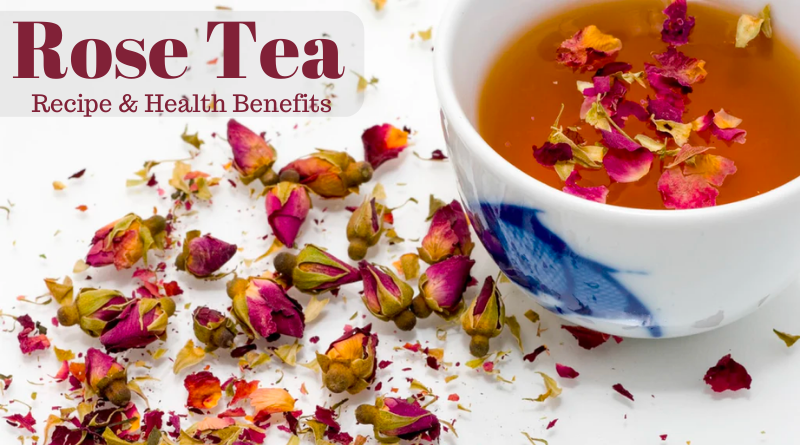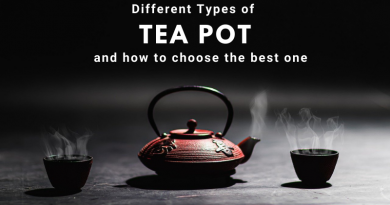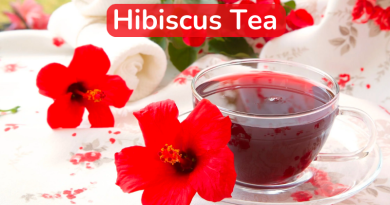Rose Tea: The Floral Elixir for Mind and Body
Rose tea has become increasingly popular in recent years, thanks in part to its unique and delicate flavor, as well as its many potential health benefits. Made by steeping dried rose petals or rosebuds in hot water, rose tea is a refreshing and soothing beverage that can be enjoyed any time of day.
But rose tea is more than just a tasty drink. It is also packed with antioxidants and other beneficial compounds that can help improve overall health and well-being. From reducing inflammation to improving digestion, rose tea has a lot to offer for those looking for a natural way to support their health.

In the following sections, we’ll explore the many health benefits of rose tea in more detail, as well as provide tips on how to make and enjoy this delicious and nutritious beverage. Whether you’re a long-time fan of rosebud tea or just discovering it for the first time, there’s no denying that this floral-infused drink is a true gem in the world of herbal teas.
How to Prepare Rose Tea
Preparing rose tea is simple and can be done in a few easy steps. Here’s what you’ll need and how to do it:
Ingredients:

- Dried rose petals or rosebuds (about 1 tablespoon per cup of water)
- Filtered water
- Optional sweeteners such as honey or sugar
Step-by-step Instructions:
- Boil water in a pot or kettle and allow it to cool slightly to about 200°F.
- Add the desired amount of rose petals to an infuser or tea strainer.
- Place the infuser or tea strainer into a cup or teapot.
- Pour the hot water over the infuser or tea strainer, making sure that the rose petals are fully submerged.
- Allow the tea to steep for 5-7 minutes or until desired strength is reached.
- Remove the infuser or tea strainer and discard the used rose petals.
- If desired, add sweetener to taste.
Tips for adjusting recipe to taste preferences:
- Increase or decrease the amount of rose petals used to adjust the strength of the tea.
- Experiment with different types of roses, such as Damask or Rosa rugosa, to find your preferred flavor.
- Add other herbs or spices such as cinnamon or ginger for additional flavor and health benefits.
- Use honey or other natural sweeteners to enhance the natural floral sweetness of the tea.
By following these simple steps and experimenting with different variations, you can easily prepare a delicious cup of rosebud tea that is tailored to your taste preferences. So go ahead and give it a try – you may just discover a new favorite beverage!
Health Benefits of Rose Tea
Rose tea has been used for centuries for its medicinal properties and potential health benefits. Here are some of the ways in which rose tea may be beneficial for your health:
Reducing Inflammation
Rose tea is rich in antioxidants, which can help reduce inflammation in the body. Inflammation is linked to a variety of health conditions, including heart disease, diabetes, and cancer. By reducing inflammation, rose tea may help prevent or alleviate these conditions.
Promoting Relaxation
Rose tea has a calming effect on the body and mind. It contains compounds that can help reduce stress and anxiety, promote relaxation, and improve sleep quality. This makes it an ideal beverage to enjoy before bedtime or during times of stress.
Improving Digestion
Rose tea has natural diuretic properties, which can help promote healthy digestion and prevent constipation. It also contains compounds that can help soothe and heal the digestive tract, making it beneficial for those with digestive issues such as irritable bowel syndrome (IBS).
Boosting Immunity
Rose tea is rich in vitamin C, which is essential for a healthy immune system. Vitamin C helps protect against infections and can help reduce the severity and duration of colds and other respiratory infections.
Scientific Evidence to Support Health Claims
While there is limited scientific research specifically on the health benefits of rosebud tea, there is evidence to support the health claims associated with the individual components of the tea, such as antioxidants and vitamin C. For example, a study published in the Journal of Food Science found that the phenolic compounds in rose petals have antioxidant and anti-inflammatory properties. Another study published in the Journal of Nutrition found that vitamin C can help boost immune function and reduce the risk of chronic diseases.
Potential Side Effects or Interactions with Medication
While rose tea is generally considered safe for most people, there are some potential side effects and interactions to be aware of. Some people may be allergic to roses and should avoid consuming rose tea. Additionally, rose tea may interact with certain medications, such as blood thinners, and should be avoided or used with caution in these cases.
Frequently Asked Questions:
Is rose tea safe for pregnant women?
While rose tea is generally considered safe, pregnant women should consult with their healthcare provider before consuming it. Some studies suggest that large amounts of rosebud tea may have uterine-stimulating effects and could potentially cause contractions.
How often can rose tea be consumed?
Rose tea can be consumed daily in moderation. However, it is important to remember that rose tea should not be used as a replacement for medical treatment or medication.
What is the difference between rose tea and other types of floral teas?
While rosebud tea is made from dried rose petals, other types of floral teas can be made from a variety of flowers, such as chamomile, lavender, and hibiscus. Each type of floral tea has its own unique flavor and potential health benefits.
Can rose tea help with skin health?
Rose tea contains antioxidants and vitamins that can help improve skin health. Drinking rose tea may help reduce inflammation and promote healthy skin.
How can I make rose tea taste better?
Rosebud tea can be sweetened with honey or sugar to enhance the natural floral flavor. Additionally, other herbs and spices such as mint, ginger, or lemon can be added to the tea for a more complex flavor profile.
In conclusion, rose tea is a flavorful and potentially beneficial beverage that can be enjoyed in moderation. While it is generally considered safe, pregnant women and those taking medications should speak with their healthcare provider before consuming rose tea. It is also important to note that while rose tea may have health benefits, it should not be used as a replacement for medical treatment or medication.




